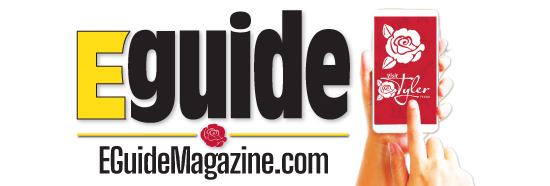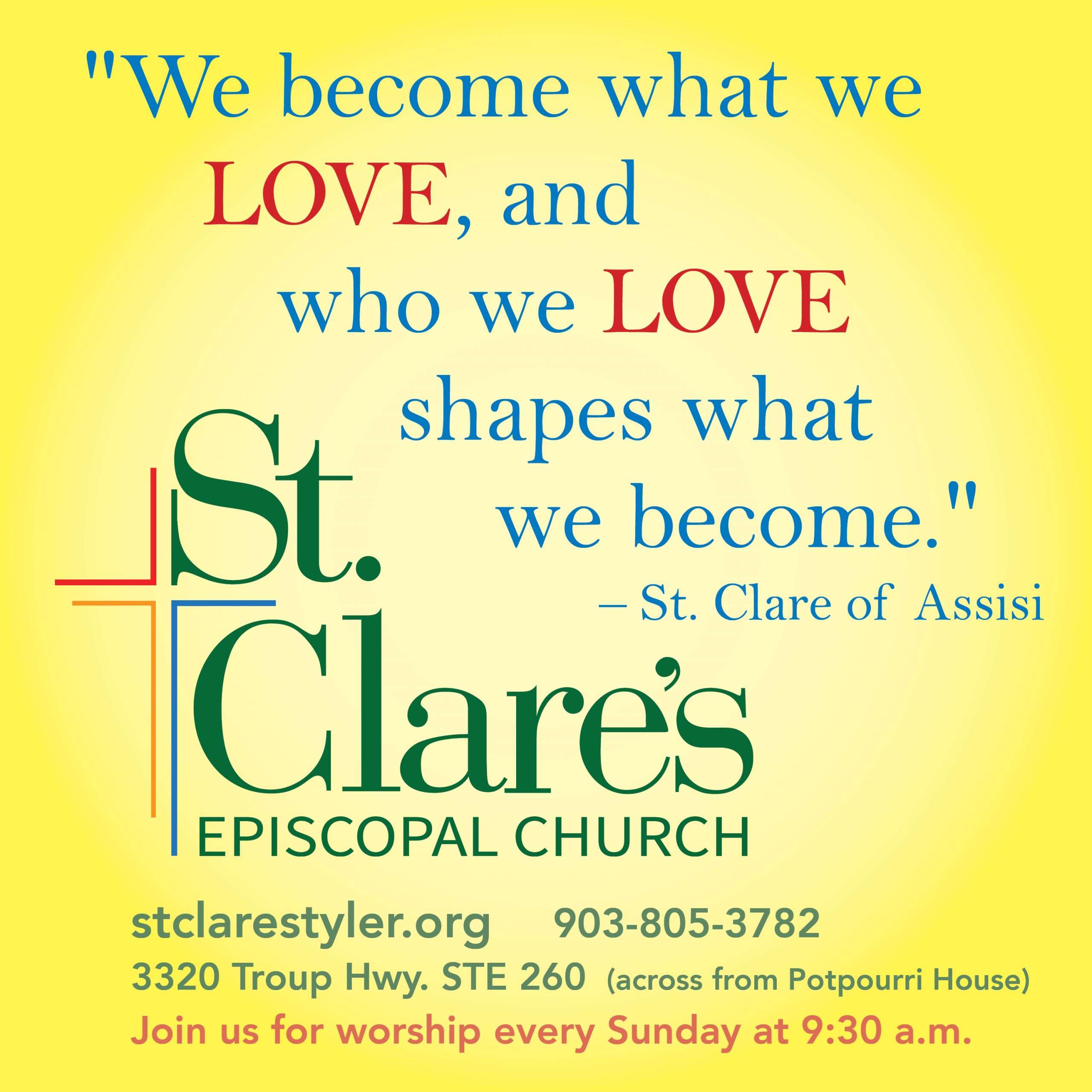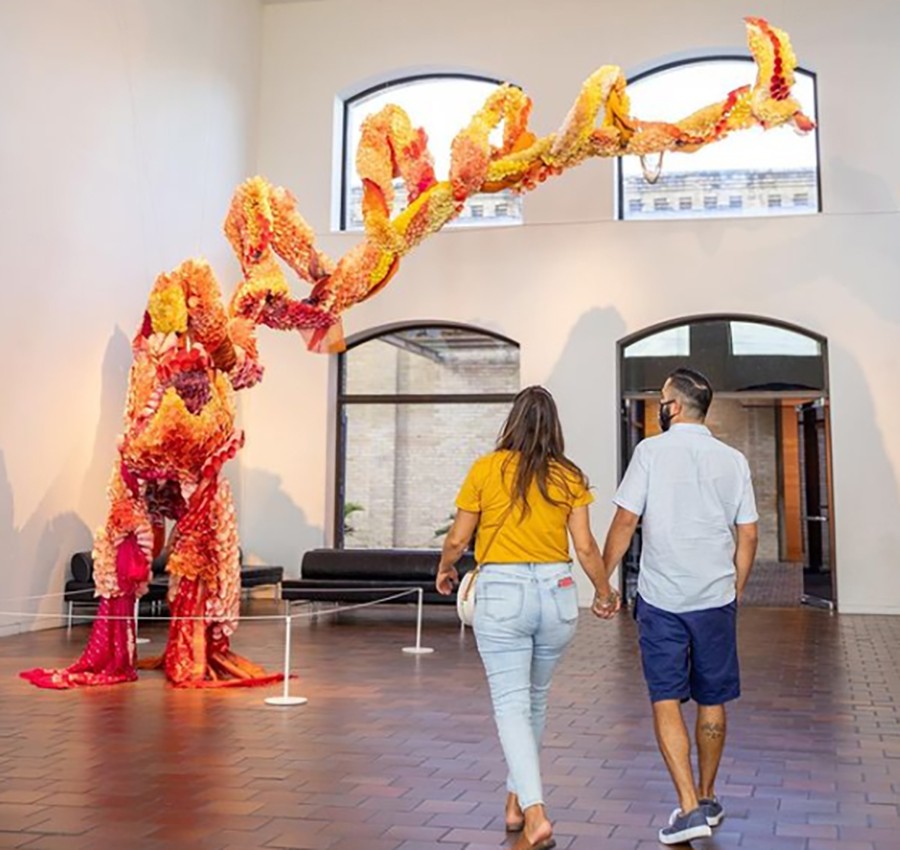
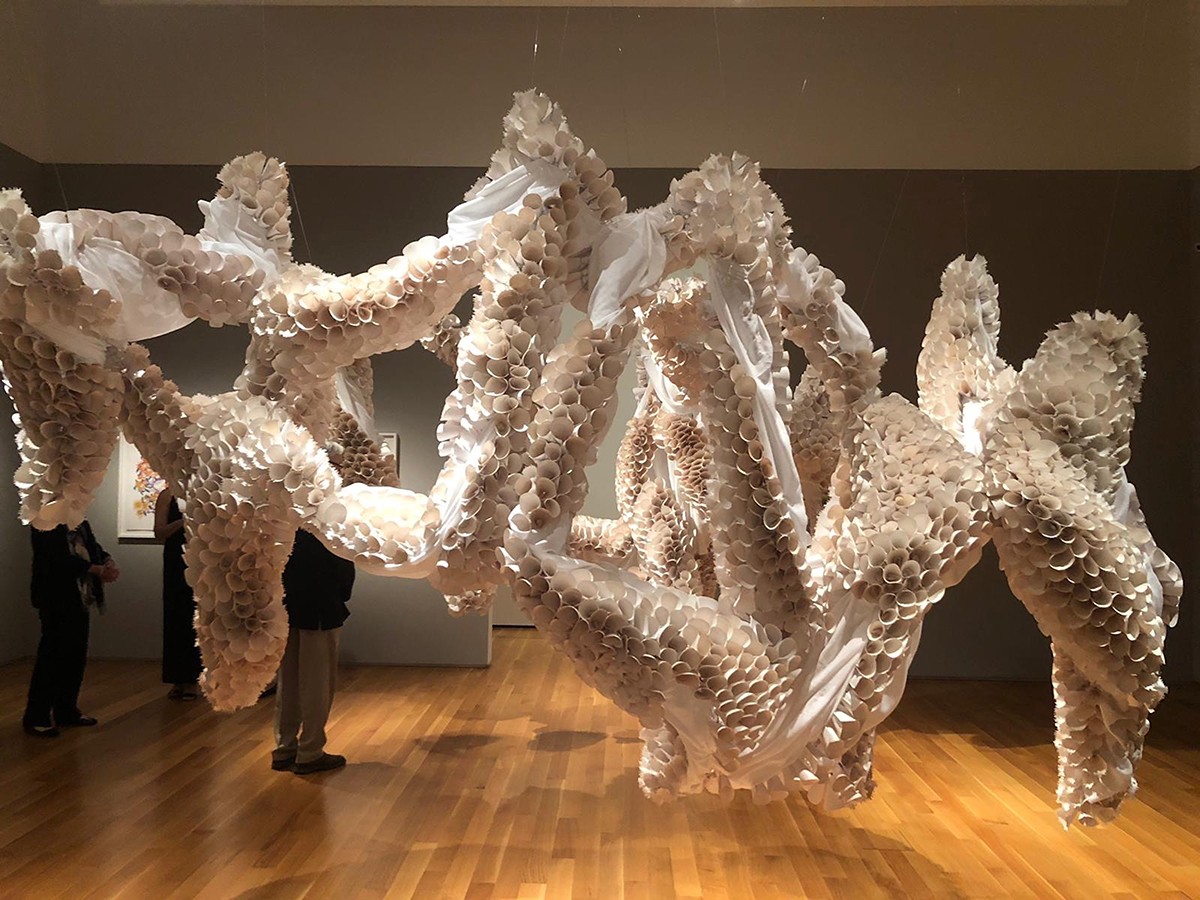
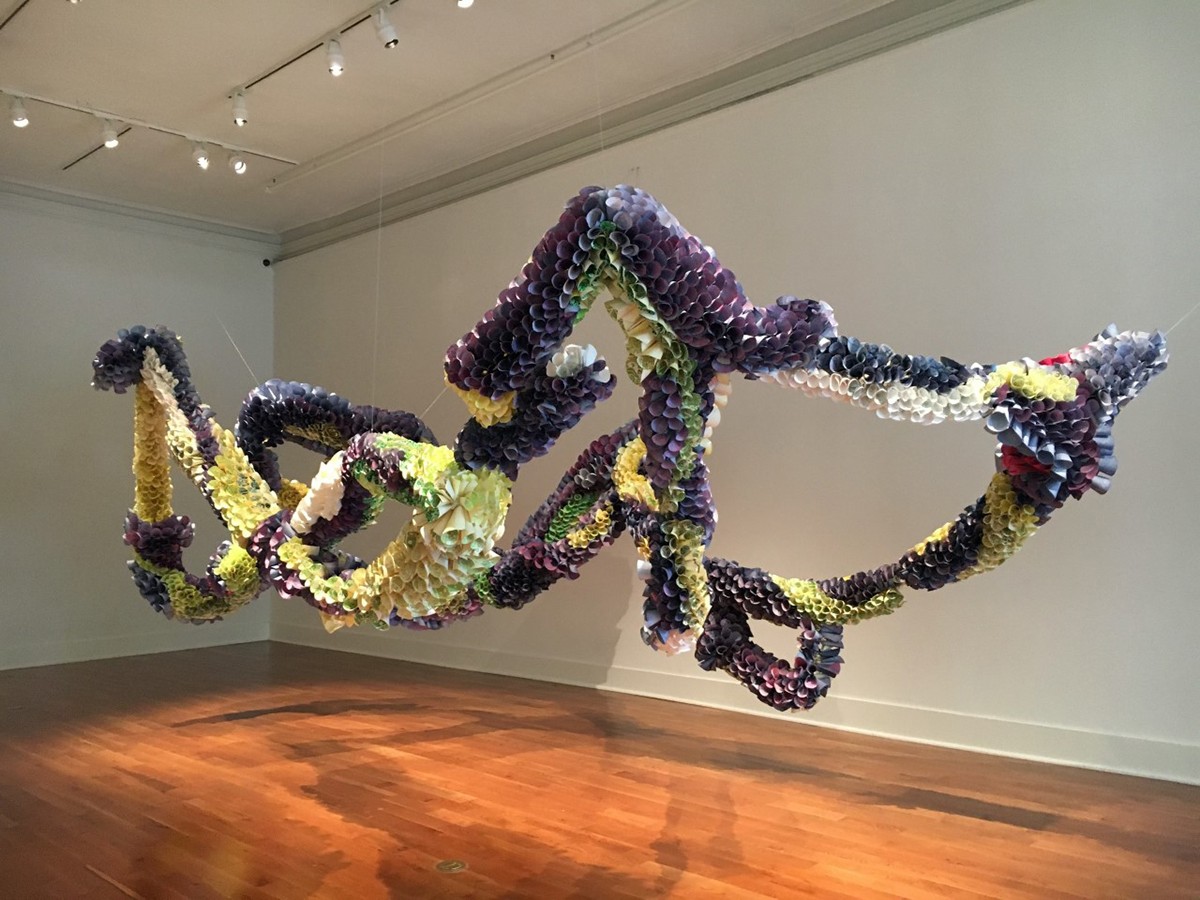
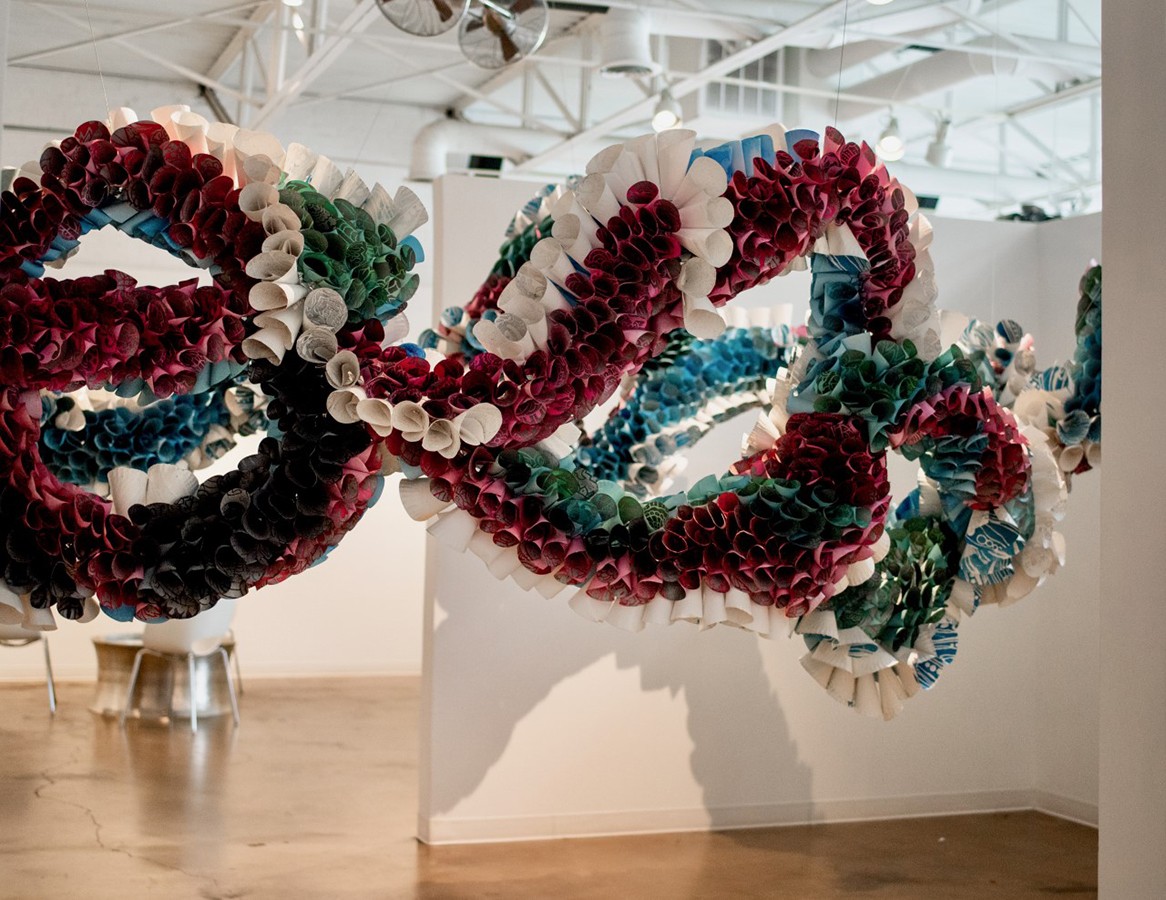
Paper Wings: Abhidnya Ghuge
By Derrick White
“I consider myself just like a paper plate, here to be of service, of use, and then leave this life when my purpose is done. If thousands of paper plates (lives) come together, we can have a positive impact. Coming together is needed to create a larger impact for change,” states local artist, Abhidnya (Abhi) Ghuge. She adds, “At this point in my life, I have gratitude for the opportunities given to me to create and for the people who want to experience what I make. I do not take this for granted. As an older, minority, immigrant woman, starting late in life in art education and in an art career, all the odds seemed stacked against me. But my friends, who believe in my work, have encouraged me over the years to continue doing what I do. I truly believe in the goodness of people, and I hope to find enough avenues to spread positivity in this world.”
Ghuge produces large-scale installation art pieces using thousands of hand woodcut printed paper plates sculpted onto an armature of chicken wire formed specifically to the space in which it is being displayed. The work is immersive, impressive, and overwhelming as one walks through, under, up to, and around her enormous and colorful structures. If you get the opportunity to see her work in person, do not hesitate.
Discussing her childhood, Abhi remembers, “Born to a father who was a natural artist (no formal art training, he was a professor of philosophy and logic), I was required to draw and present a new work every Friday from the age of 5 years to 8 years. Later, my parent’s marriage began disintegrating and I spent my teen years in a highly dysfunctional, broken and psychologically erosive family. Drawing the chaos in my mind allowed me to present, in abstract fashion, my desire for security, nurturing, closeness, love, and peace. As an adult, I want to bring attention to those small drops of everyday issues making up the ocean of life. I believe art breaks all language and cultural barriers.”
Abhi explains, “As a first-generation immigrant from India, the ideas of human disposability have seen a drastic change for me after coming to the United States. Growing up in India, I saw female lives trapped in a dichotomous state of a deity, worshipped, admired, and venerated, and as a doormat, being used, abused, sold, exploited, and trampled upon. A female fetus was considered a bad omen in some strata of the caste system resulting in abortions (so much so the government banned gender revelation at prenatal ultrasound visits). Starting with issues relevant to me as an immigrant woman from Asia who went back to school at 40 years of age, to begin a second career, while managing a household, I observe the community I am in and the national scene and its attitudes and its effects on people like me.”
Discussing the viewers’ experience with the art she constructs, Abhi describes, “Viewer interaction of my work completes the intent and purpose of its existence. To be successful, the viewer must come close and experience my installations or my drawings. The main concepts addressed in my installations are value for life, dignity of labor, and the power of people coming together to create positive change. I have heard many questions from guests who have taken the time to walk through, sit under, or wander about my installations. I use disposable paper plates because they are made to be discarded. We, as people, are not much different. We come into this world with an expiration date. There is nothing we can do to change this, but we can become engaged in family, society, and the geography we find ourselves in and share our talents with others. All we need is life to imprint its design on us in the form of experiences and we are ready to tell our story.”
Ghuge’s installation works take hundreds of hours of manual labor to painstakingly prepare and install.
She explains, “There is nothing like the satisfaction one gets from the work of our own hands. All the steps in the making of the installation from woodblock carving, to printing, to stacking, to folding and plugging into the chicken wire are done by hand. There is dignity in labor. I draw henna-inspired designs on a large-scale woodblock and carve it using a drummer and router. Paper plates are laid on the woodblock and printed using archival oil-based ink. I place personal symbolism on the colors I use. The ink color mixed for printing often reflects my day and my emotions, for example, a rough day could result in a deeper red ink color than a day when things were not so difficult. It takes three to four months to print, dry, and stack 8000 paper plates required for an installation. Although generally a paper plate is used and disposed of at the end of its use, these are infused with value and as a part of a greater whole, they maintain their value even after the installation is taken down. What makes me most happy is to see people change their psychology towards a mundane, humble, lowly paper plate and say, ‘After seeing this installation, I will never look at a paper plate the same way again.’”
Abhi’s mixed-media drawings are freehand drawings, one of a kind and never repeated. They are henna designs with a Western twist. Common forms are small trees or vines with three types of flowers on each branch indicating the three answers to any question, yes, no, and wait.
Abhi concludes, “Growing up in India at a time when we did not have a TV or radio, we spent most of our after-school time playing in the streets, climbing trees, and making henna designs on friends. In my yard, there were plenty of henna shrubs. I would gather leaves, grind them on a stone to the consistency of a paste. Then using a sharpened matchstick, I would draw designs on my friend’s palms. On hot summer days, the coolness of henna on the palm was a welcome relief. The floral designs came from the endless variety of flowers from my neighborhood in the tropical city of Mumbai.”
Abhidnya Ghuge holds a MD Dermatology degree from the University of Bombay, India, and both a Bachelor of Fine Arts degree and a Master of Fine Arts degree from The University of Texas at Tyler.
See more at: abhidnyaghuge.com.

